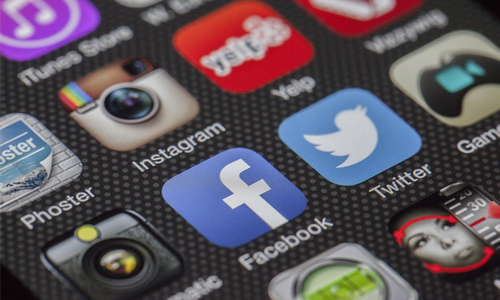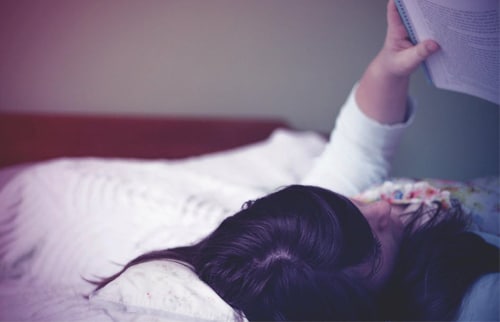There are avid readers, occasional readers and those that rarely ever pick up a book. A love of reading sometimes fades as we grow up, or we struggle to find the time to sit down and enjoy a chapter.
Reading is important for learning and good mental health. It relaxes us, provides escapism and brings knowledge on a vast range of subjects. It always helps to pick up a book for a break at any time of day. However, there is now plenty of evidence to show that we are better off setting a regular reading schedule with a chapter or two before bed.
So why is bedtime reading so helpful for better sleep and mental health?
Real Books Are Relaxing To Read
First of all, there is no denying that reading is a relaxing experience. Book lovers don’t just reach for a page-turner for the quality of the literature. There is that deeper love of the genre at play, but often it is the broader experience of reading that is so enjoyable. Many make an effort to read as a way to unwind either after or during a busy day.
(Source: Real Simple)
Books are portable, accessible, non-judgmental forms of entertainment for the commute, lunch break and that perfect cozy nook in the home. It is a sensory experience with the smell of the well-read pages, the feel of the paper and weight of the book, and the overall comfort of a reading sanctuary.
Researchers at the University of Sussex discovered that a half hour period of reading each day not only reduces stress but does so in ways that other methods cannot manage. Therefore, they advise us all to read a little more to improve our stress levels.
Choosing the right reading material for that perfect relaxing break
Those reading for relaxation and pleasure can find something that they connect with. There is no right or wrong answer here if readers feel that they come out of a chapter, or reading session, well. This means with a little less tension, a sense of well-being and a broader smile on their face. This means anything that taps into a love or niche interest, from sci-fi and romance novels to special interest books like autobiographies and nature writing. Readers should feel free to explore and enjoy that journey of discovery.
Why is it even better to set this reading session before bed?
It helps to read at any time of day for a great, relaxing experience. However, there are also additional benefits to reading before bed. Readers that suffer from poor sleep patterns and stress may decide to switch their half hour reading time to before bed for the best experience.
Keen readers may decide to add an extra session here to their other reading time. It is all about allowing the body and brain to wind down before bed and allow for better sleep. Our brains have trouble completely switching off, even when we know that we should drift off.
We find ourselves kept awake with thoughts and distractions, which transform into stresses and anxiety. Before long, this can result in sleep disorders and insomnia. Reading can block these thoughts and distractions and put us in a better state of mind.
Choosing the right reading material to completely wind down before bed
Again, readers can pretty much choose anything here that allows for calm and peace. It all comes down to that ability to switch off and head into a different mindset. Some will stick with their favorite genres, like science-fiction or romance for that sense of familiarity and escapism.
Those that want to try something new might turn to authors that had always wanted to try, some nature writing about the local landscape or some poetry. Beware of anything too challenging in its prose, or anything to exhilarating or scary.
A little bedtime reading can also inspire pleasant dreams to aid with better sleep
Some readers are able to take their reading to another level regarding the emotional connection and psychological effects. There is always a character that we connect with more than others on an emotional or spiritual level.
Certain places and scenes dig deep into our imagination to the point we wish we could stay there. Regular trips into these worlds before bed can influence dreams. Readers of some epic series’ find themselves dreaming about the characters or worlds of the novel. There are those that take classes in Hogwarts at night, end up joining the fellowship in Middle Earth or take joining #teamedward to another level.
This all sounds like a bit of harmless fun, perhaps something that some dreamers wouldn’t share once they wake up. These dreams have a positive impact on sleep and mental health. A good dream with a smile the next morning is much better than a negative dream that drags up stress and fear. Regular trips to these fantasy worlds during sleep don’t harm anyone, and they can replace negative thought and nightmares for a more restful sleep.
Choosing the right reading material for pleasant dreams
The obvious approach here is to find some much-loved fantasy world to immerse in night after night. Harry Potter is an obvious choice for fans that can re-read the series often. The Game of Thrones saga is ideal for fans of that series because it takes so long to finish it.
The best dreams come from the material with the best emotional attachment. Those that want to dream of being a detective in the 1930s should read lots of Agatha Cristie. Those that want to relief childhood pleasure and innocence should return to an old favorite of their youth.
Reading before bed also limits exposure to light sources that disrupt sleep
Reading for better sleep isn’t just about the pleasure and stress relief that comes from reading the prose of a good book. There are much simpler benefits to physically picking up a book and making that choice over other forms of entertainment.
It is far too easy to turn to the television, a laptop or some mobile device and try and fall asleep to a good box set. There is a similar sense of unwinding and freeing oneself from the real world. However, there are additional problems with using mobile tech in bed that aren’t an issue with a book.

The biggest issue here is the problem of blue light emitted out of screens. Every phone, tablet and another piece of mobile tech these days have some form of backlight. This is essential for readers and viewers to see the images and text comfortably. However, hidden dangers exist in the tone of the light.
Manufacturers design these lights to mimic natural daylight. This is visually appealing and helpful. But, we shouldn’t expose ourselves to this form of fraudulent natural light when the sun goes down. These lights can affect our body clocks, disrupting sleep cycles and exaggerating insomnia.
Books allow us to escape into similar worlds with no need for those problematic light sources, just a soft bedside light. With time, we can improve our circadian rhythms and hormone levels for a better night sleep.
Choosing the right reading material when trying to kick the habit of the TV
Success here may depend on the material. It has to be as engaging as the TV series you declined to watch. Therefore, this means going back to those ideas of immersive worlds like Westeros and Hogwarts. Those vivid lands, castles and mythical dragons don’t have to be on a screen to become visible. We can imagine them in greater cinematic detail in our mind.
Middle Earth and Narnia are among the countless worlds to fall into. Many top TV series and films are adaptations of novels now. Readers could find that the source has greater depth and intrigue, and they can jump right in by imagining the faces of actors.
Reading before bed also removes the problem of social media and other notifications
Then there is another added benefit in ditching the tablet or phone before bed – no social media or emails! This is one of the worst habits that many young adults fall into these days.
It is too easy to have a phone or tablet on the side of the bed, or even next to the pillow. It acts as a clock, alarm and something of a security blanket. This means access to these features, and media items like e-books and video streaming. It also means quick internet access to social media platforms and emails.
As mentioned above, the key to restful sleep often lies in the ability to switch off from the day past, and not worry about the day ahead. It is difficult to do this if there are emails, Facebook updates, texts and an endless Twitter feed to worry about. Out of sight means out of mind.
When we put the phone and tablet away and forget about the real world of work and social media, we can escape to those other worlds of fiction and enjoy better sleep patterns.

Choosing the right material to get away from the technological world and distractions
Again, the right book can make a difference here. Ideally, this means nothing remotely work related that may trigger ideas or a desire to reach for the tablet. Also, absolutely no study textbooks. This situation calls for some fiction in a time of the place where none of that matters. A time without social media or mobile tech.
Readers should try some historical fiction, old crime novels or fantasy. Alternatively, some science-fiction highlighting the horrors of AI and connectivity may put readers off mobile tech for a while.
Whichever the style of the book, readers cannot overlook the importance of a reading routine.
The bedtime routine of reading must remain the same whether readers choose to re-read an old fairy tale or a couple of chapters of epic science-fiction. Just 10 minutes per night can make a huge difference in sleep patterns and health. 30 minutes allows for deeper immersion if readers can spare the time.
The point is to stick with this goal of a certain time or a certain number of pages and to do so with a routine that evokes calm and restfulness. Those that take a bath before bed may read there. Others will do so in a cozy chair with a blanket and mug of herbal tea or cocoa. Others will want to be in bed to turn out the light and sleep beside the chapters. It is all about finding the best fit for happiness and calm and sticking with it. This routine will help with daily calm and a better sleep pattern.
Some will question the logic here. It may be far too easy to lose oneself in a book, read the next chapter and ruin a strict regime. Here it is all about willpower. We can try for one chapter a night, with the intrigue and images of the next to lead us nicely into the next day. This gives something to look forward to and to mull over as we drift off. This anticipation leads back to the idea of distractions and pleasant dreams.
Readers in this situation no longer think about the stress of work of other dilemmas. Instead, they concoct fantasy solutions to the cliffhanger, potentially acting them out in their dreams.
There are plenty of good reasons to pick up a book at the end of a long day.
The stories of great books help us to escape from a world of workplace stresses and immerse in fiction that enriches the soul. Books help to relax us and provide a little perspective for those attached to pointless social media feeds.
More importantly, this brief window away from the real world, and the dangers of screens can help to reset the body’s biological rhythms and create better sleep cycles. Those that give up the tablets and phones pick up a book and enjoy a chapter each night will see the benefits of their physical and mental health.
